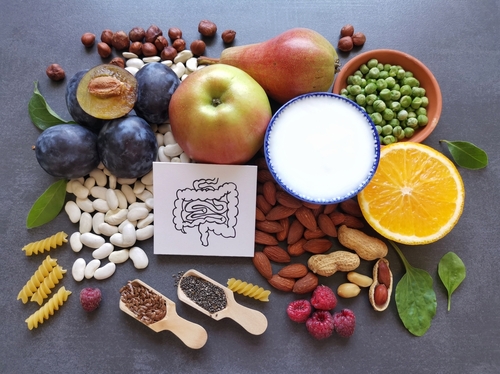When the Mind Affects the Stomach
Have you ever felt butterflies in your stomach before a big event—or experienced bloating after a stressful day? That’s not coincidence. The gut and brain are in constant communication, and what affects one often impacts the other. This connection is called the gut-brain axis, and it plays a powerful role in how we digest, absorb, and react to the food we eat.
Chronic stress doesn’t just wear down your mind—it can slow digestion, increase inflammation, and disrupt the delicate balance of your gut microbiome. But by approaching food and stress with more awareness and care, it’s possible to create an internal environment where your body can truly rest and digest.
Ad Banner #1
— Placeholder for the first advertisement —
The Gut-Brain Connection Explained
The gut is sometimes called the “second brain” for good reason. It contains over 100 million nerve cells and communicates with the brain through both the nervous system and hormonal signals. This two-way communication means that emotional stress can impact digestive processes like:
-
Stomach acid production
-
Enzyme release
-
Gut motility (how fast food moves through the intestines)
-
Microbial balance
-
Nutrient absorption
When the nervous system is stuck in “fight or flight” mode, the body prioritizes survival over digestion. Blood flow is redirected away from the digestive tract, enzymes decrease, and food can sit longer in the stomach—leading to bloating, gas, cramping, or irregularity.
Even low-level, daily stress (like rushing through meals, multitasking, or worrying about to-do lists) can strain the digestive process over time.
How Stress Shows Up in the Gut
Different people experience stress-related digestive symptoms in different ways. Common signs include:
-
Bloating or gassiness
-
Indigestion or acid reflux
-
Constipation or diarrhea (or a combination of both)
-
Food sensitivities or appetite changes
-
Tension in the abdominal area
For some, stress also contributes to or worsens conditions like IBS, leaky gut, or SIBO, creating a frustrating cycle of symptoms.
But there’s hope: creating a more relaxed, intentional approach to eating and daily life can gently restore balance—starting with a single breath.
Mindful Eating: Reconnecting with the Act of Eating
Mindful eating is one of the simplest and most effective ways to improve digestion in the presence of stress. It invites you to slow down, chew thoroughly, and bring full awareness to the experience of eating.
How to start:
-
Sit down and unplug: Step away from screens or work when you eat.
-
Take a few deep breaths before your first bite: This signals to your body that it’s time to switch from stress mode to digestion mode.
-
Chew slowly and thoroughly: Digestion begins in the mouth. Rushed chewing means more work for your stomach and intestines.
-
Notice the flavors and textures: Enjoying your food engages the senses and naturally slows down eating.
-
Pause between bites: Give your stomach time to catch up and avoid overeating.
These steps may seem small, but they train the nervous system to associate meals with calm—not chaos.
Breathing & Nervous System Reset
When your breath is shallow and rapid, your nervous system stays in a heightened state. Slowing the breath is like flipping a switch: it activates the parasympathetic nervous system (the one responsible for rest, digestion, and healing).
Try this simple practice before meals or when tension builds:
-
Sit or stand comfortably.
-
Inhale slowly through the nose for a count of 4.
-
Hold the breath for a count of 4.
-
Exhale gently through the mouth for a count of 6.
-
Repeat for 1–3 minutes or longer as needed.
Even a few rounds can calm the mind, relax the body, and make digestion smoother and more efficient.
Ad Banner #2
— Placeholder for the second advertisement —
Everyday Stress-Reduction Habits
Supporting digestion isn’t just about what happens during meals. Creating an overall calmer rhythm in your day helps regulate gut function over time.
Gentle, consistent stress-reduction tools include:
-
Morning journaling or brain dumping to release mental clutter
-
Walking in nature or simply moving your body after meals
-
Stretching or yoga, especially forward folds and twists
-
Digital breaks to reduce mental overstimulation
-
Establishing a wind-down routine before bed for deeper rest
-
Saying no to overwhelm and yes to more space in your schedule
Even 10 minutes a day devoted to calming practices can make a meaningful difference in digestion and overall well-being.
When to Seek Deeper Support
If digestive symptoms persist despite calming efforts—especially symptoms like chronic bloating, pain, or irregular bowel movements—it may be time to work with a healthcare provider. There could be underlying issues like food intolerances, gut dysbiosis, or hormonal imbalances at play.
But even in those cases, stress management remains a crucial piece of the puzzle. Addressing both body and mind tends to produce the most lasting results.
The Gut Feels What You Feel
Your gut listens closely—to what you eat, yes, but also to how you live. When stress levels are high, digestion often takes a back seat. But through simple practices like breathing deeply, slowing down meals, and creating calmer daily rhythms, you can create an inner environment where your gut feels safe enough to do what it does best.
You don’t need perfection—just presence, and a little more kindness toward yourself in the process.
























